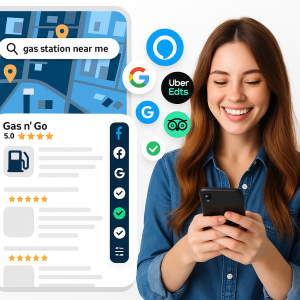Website Security FAQs: What You Need to Know
Website security affects everyone who owns or manages a website. It doesn’t matter if your site is a blog, an online shop, a small business page, or a large e-commerce store; the risk of hacking is real. At WebWorks Media, we speak to website owners all the time who think it won’t happen to them. One day, they log in and everything is gone, or worse, their site is being used to trick people or spread malware.
Let’s walk through the most common questions and myths about website security so you can protect your online space with confidence. We’ll explain risks, solutions, and what to do when things go wrong.
Is My Website Really at Risk of Hacking?
Yes, absolutely. Every website can be targeted by hackers. It doesn’t matter how much traffic your site gets or whether you think there’s anything worth stealing. Hackers often use tools that scan the internet for sites with known weaknesses, like outdated software or common passwords.
We’ve seen tiny websites with very little traffic get hacked and turned into part of a spam network. We’ve also seen high-traffic websites go offline for days due to malware they didn’t even know was hiding in one of their plugins.
Some of the most common entry points include:
- Weak passwords that can be guessed or cracked
- Plugins or themes with known security flaws
- Out-of-date content management systems
- No firewall or malware protection
- Public Wi-Fi connections used to log in without protection
Website Security: How to Prevent Attacks
Preventing hacks doesn’t require expert coding skills; it’s about keeping things clean, up to date, and hard to guess. Here’s how you can start improving your website security today:
Always Update Software
The most common reason we see websites get hacked is that something wasn’t updated. This includes:
- WordPress or other CMS platforms
- Plugins
- Themes
- Server software
Updates often fix known security holes. Hackers watch for these and rush to attack websites that haven’t patched the problem yet. So when you get an update alert, act on it quickly.
Use Strong Passwords and Limit Access
Avoid simple passwords like “admin123” or using the same password for everything. Use a security tool or password manager to create strong, unique passwords for each account.
Also, only give admin access to people you trust, and remove unused logins. If someone leaves a project or company, remove their access immediately.
Install a Website Security Plugin
Some tools run in the background to help block attacks. Many firewalls and malware scanners are free or low-cost, especially on platforms like WordPress. Popular options include Wordfence, Sucuri, and iThemes Security.
Regularly Back Up Your Website
We cannot stress this enough. Backups are your last line of defence. If your website is attacked or goes down, you can restore a clean version and get back online within hours.
Backups should:
- Happen automatically, ideally every day
- Include both the files and your database
- Be stored offsite (not just on your hosting server)
- It is easy to restore when needed
Most hosting plans come with backup tools, but it’s still worth checking how often they run and how to access them quickly.
Cyber Security Auditing: What Is It and Should You Consider It?
Cybersecurity auditing is a way to check your site for security gaps before something goes wrong. Think of it like a health check for your website. At WebWorks Media, we often run these for clients, especially if they’ve just recovered from a hack or are planning to grow their website.
Auditing usually includes:
- Scanning for vulnerabilities
- Reviewing user permissions
- Checking software versions
- Monitoring unusual login activity
- Testing backup systems
It can reveal hidden problems you wouldn’t otherwise spot until it’s too late.
What Should I Do If My Website Gets Hacked?
First, don’t panic. Lots of websites get hacked each day. What matters is how quickly and carefully you respond. These are the first steps you should take:
Take the Site Offline or Limit Access
If users are being redirected or malware is being spread, it’s safer to temporarily take the site offline. Notify your host or use a maintenance mode plugin while you clean up.
Restore a Clean Backup
If you’ve kept regular backups, it may be quicker to wipe your site and restore the most recent clean version. After restoring, be sure to change all passwords and scan for anything unusual.
Scan for Malware and Remove It
Use a malware scanner or ask a professional to check for hidden files or functions added during the hack. This includes scripts that steal data or open the door for future attacks.
Secure Your Site So It Doesn’t Happen Again
This may mean changing your passwords, updating everything, and installing new software. It’s also worth considering a cybersecurity auditing session to find out how the hackers got in.
How Does Website Security Affect SEO and Reputation?
Getting hacked can do serious damage to your online presence. Search engines like Google will often flag or block hacked websites. Your traffic can drop overnight. Visitors may see warning messages about malware or viruses, which can destroy trust in your brand.
Rebuilding your online reputation takes time. That’s why prevention is always better and cheaper than repair.
Website Security and Ongoing Maintenance
One of the biggest mistakes we see is people setting up a website, then leaving it untouched. A secure website needs some attention every week or month. Even small changes can help protect against major problems.
This includes:
- Checking for software updates
- Backing up the site regularly
- Scanning for unusual files or login attempts
- Reviewing admin users and permissions
- Keeping passwords secure
At WebWorks Media, we offer website care plans that cover all of this, so our clients don’t have to worry. If you manage a website yourself, set a reminder to do a quick check once a week.
FAQs
Do small websites get hacked?
Yes. Hackers often go after smaller websites because they usually lack strong security measures.
Will updating plugins make a difference?
Yes. Most attacks happen through outdated software. Keeping everything up to date removes known holes that hackers look for.
What is the first thing I should do after a hack?
Start by changing all passwords, then take the site offline and restore a backup if you have one.
Can I use free security plugins?
Yes, many good options are free. They may not catch everything, but it’s better than nothing.
How often should I back up my website?
Daily is ideal for businesses. At a minimum, once a week. Also, test that you can restore from your backups.
Is a cybersecurity audit only for large businesses?
Not at all. Any website can benefit from a quick check. It’s often cheaper to fix small issues before they become big problems.
Why Website Security Must Be Part of Your Routine
Website security isn’t just for tech experts or big e-commerce brands. It’s something every website owner should care about, because every site is a target. The good news is that good habits like changing passwords, updating software, and making regular backups go a long way.
We’ve seen too many businesses lose years of work because they didn’t take basic steps to protect their site. At WebWorks Media, we help clients stay ahead by offering easy, affordable ways to secure their websites without stress.
Keep Your Website Safe: Simple Steps to Stay Protected Online
If your website matters to you, then protecting it should be part of your regular upkeep. Think of it the same way you’d look after your home, shop, or car: regular checks, a good lock on the doors, and insurance just in case.
Start with strong passwords, automatic updates, physical backups, and try a cybersecurity auditing session to know where you stand. If you ever need help, reach out to the team at WebWorks Media. Securing your site doesn’t have to feel overwhelming.
Stay safe online, and don’t wait until something breaks to fix it.















